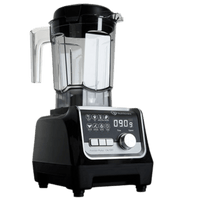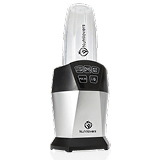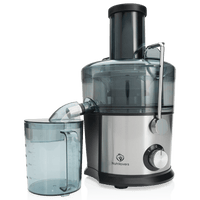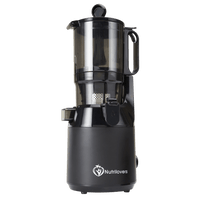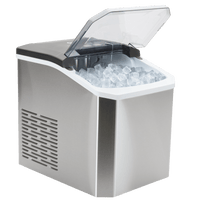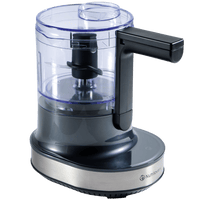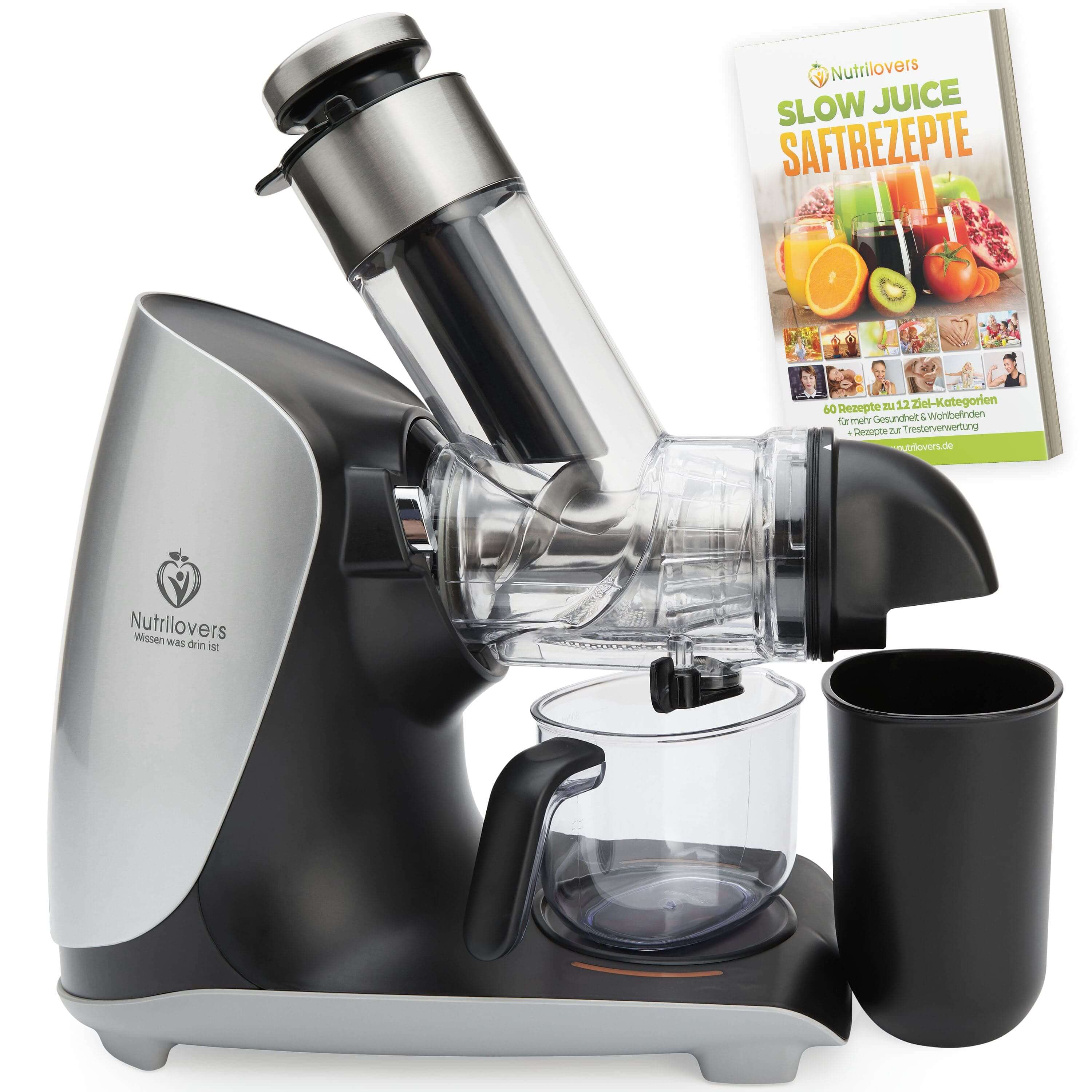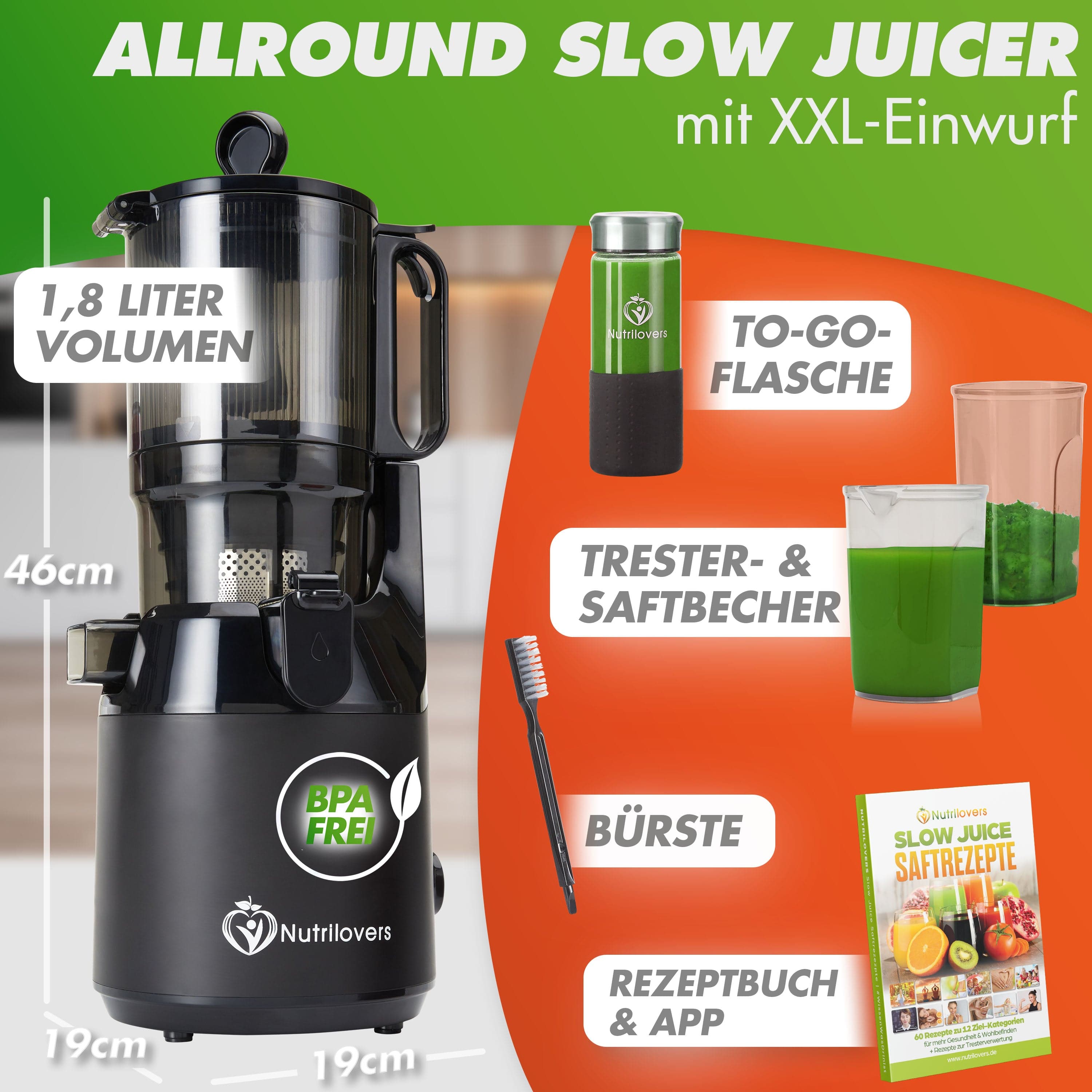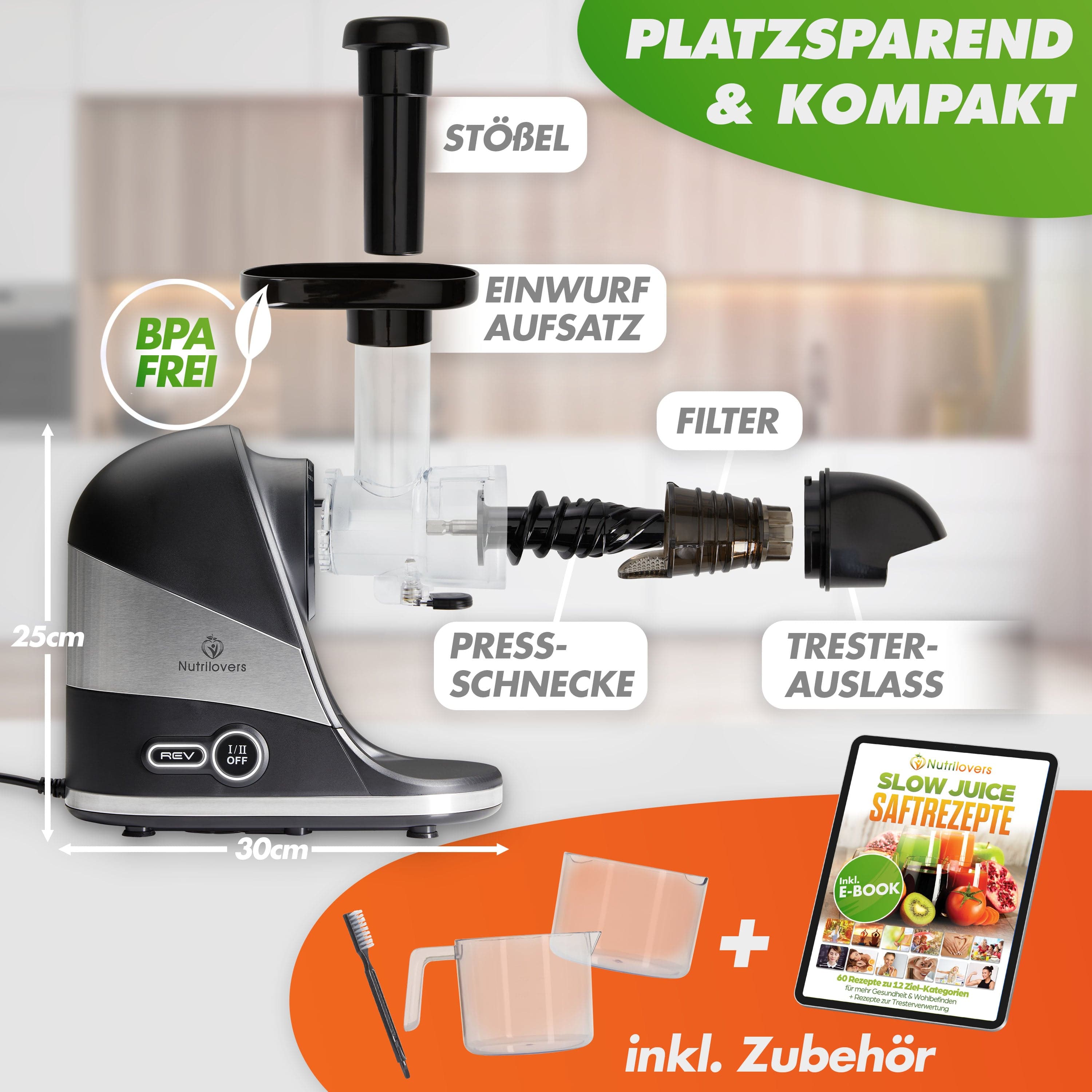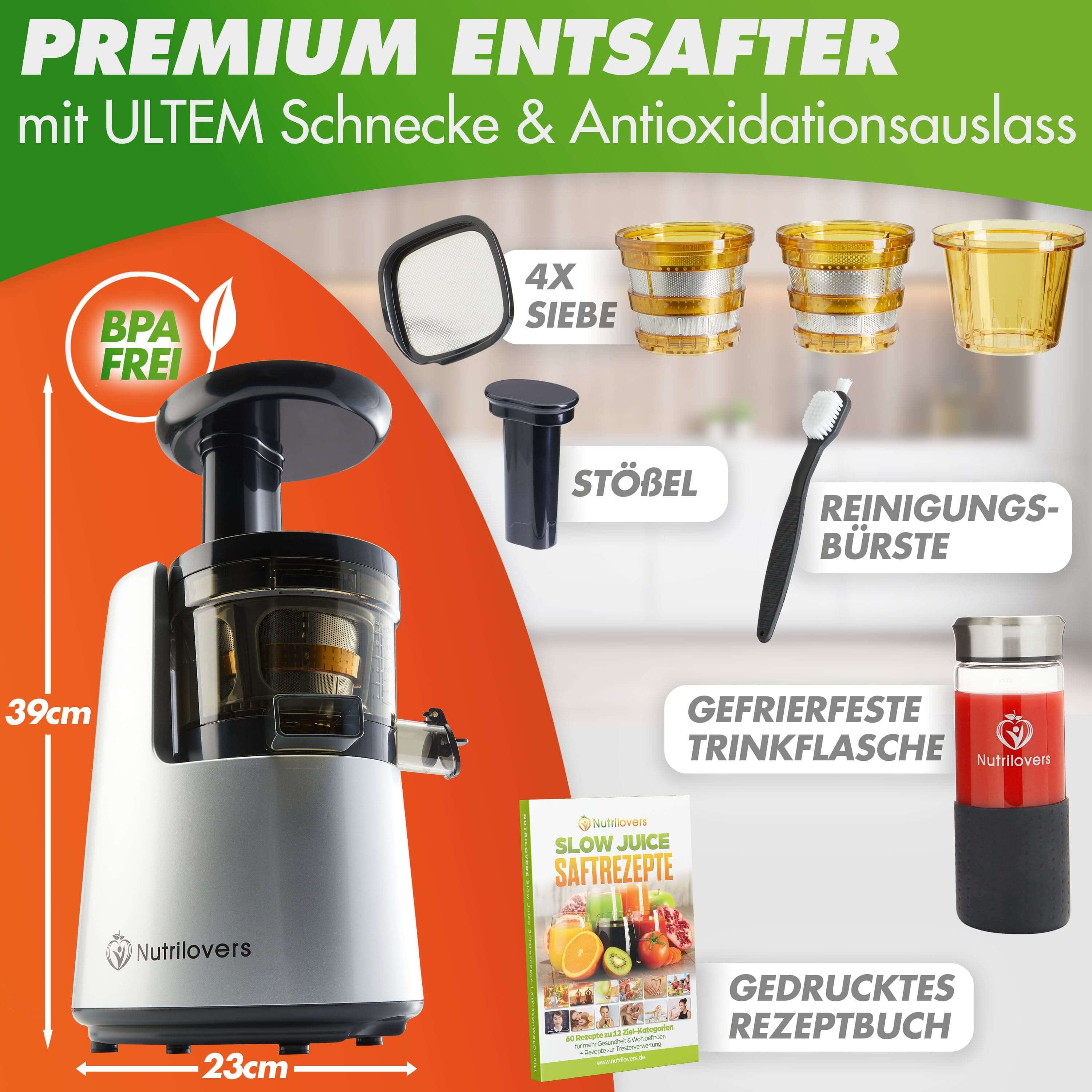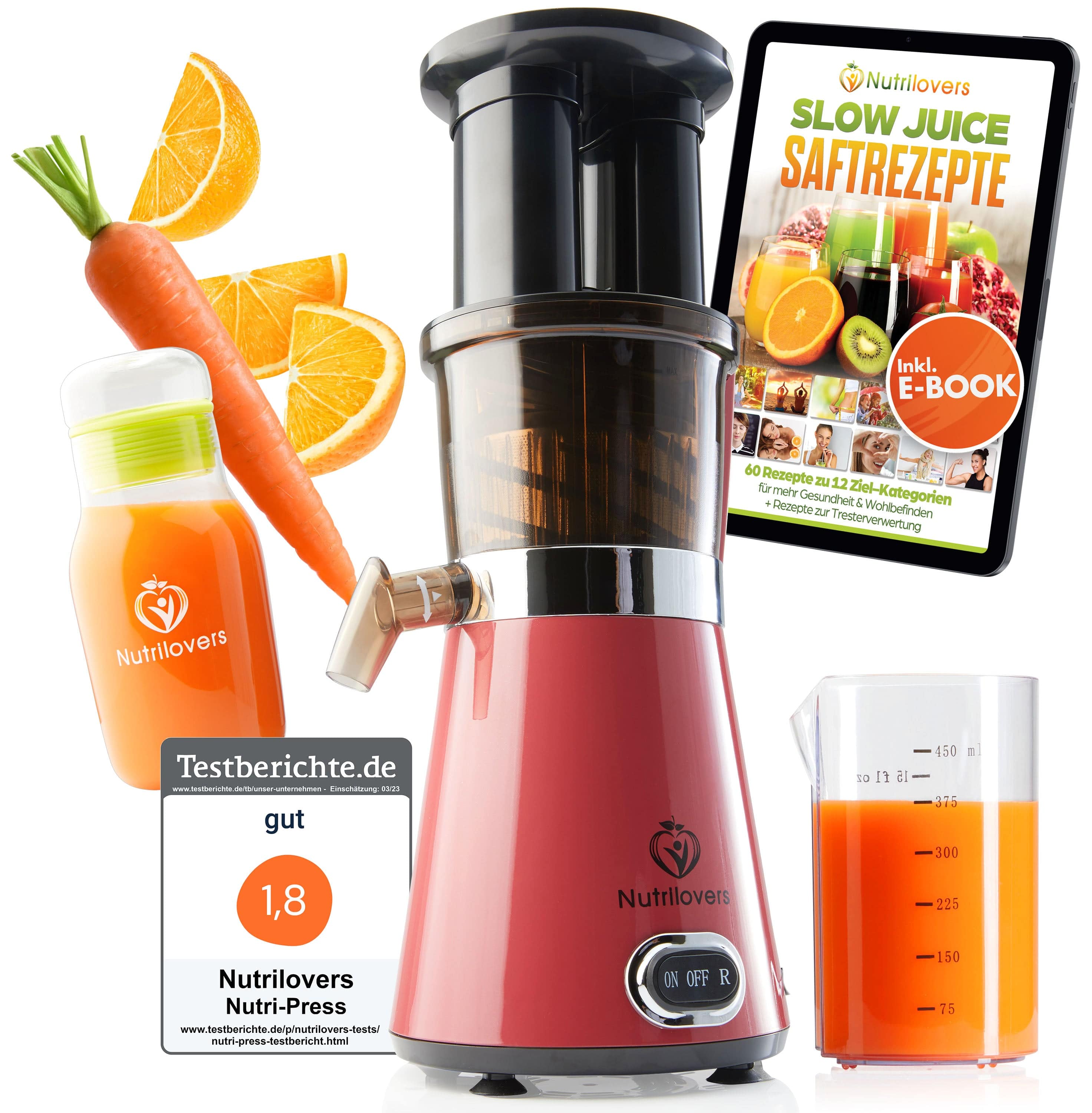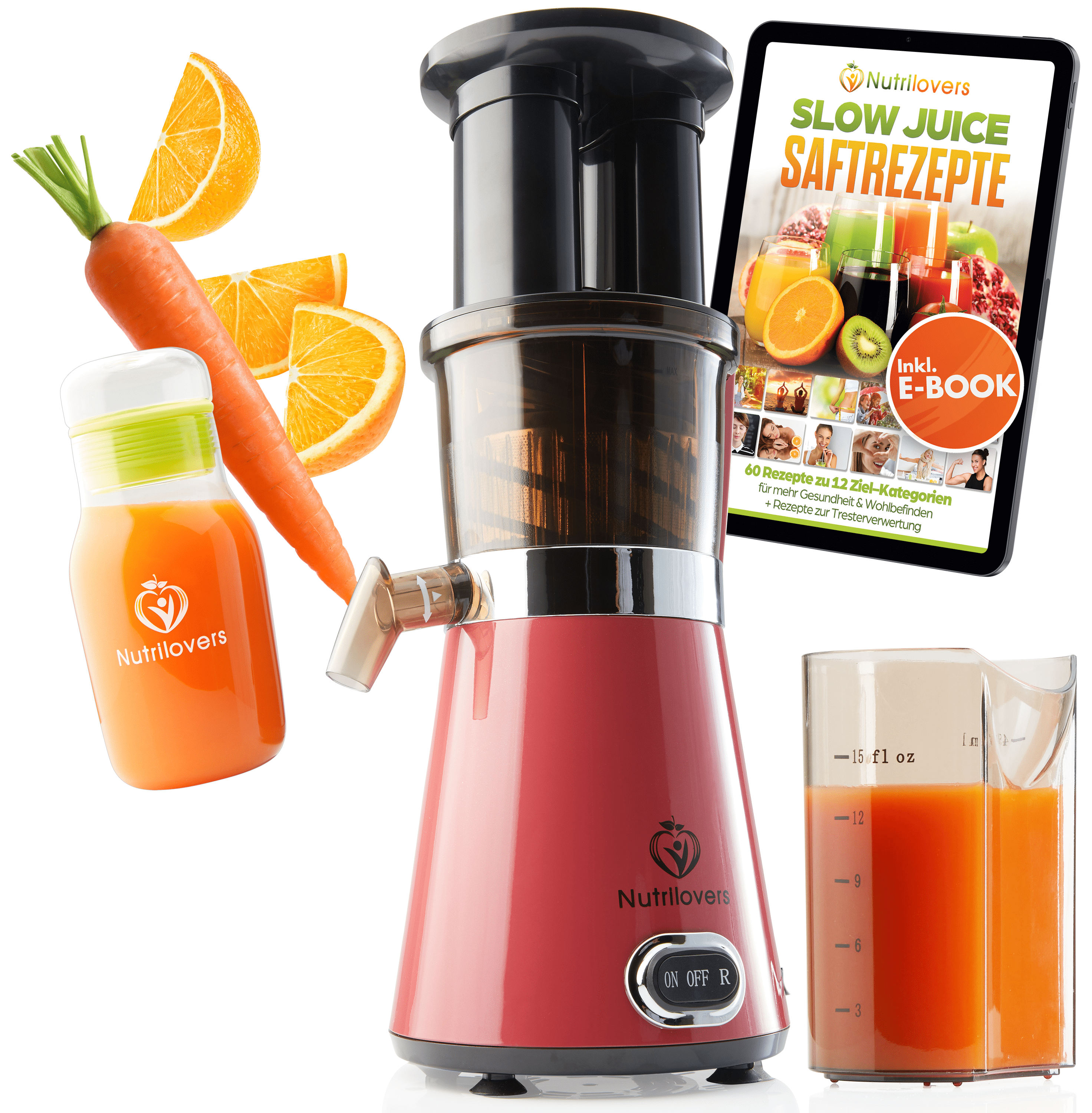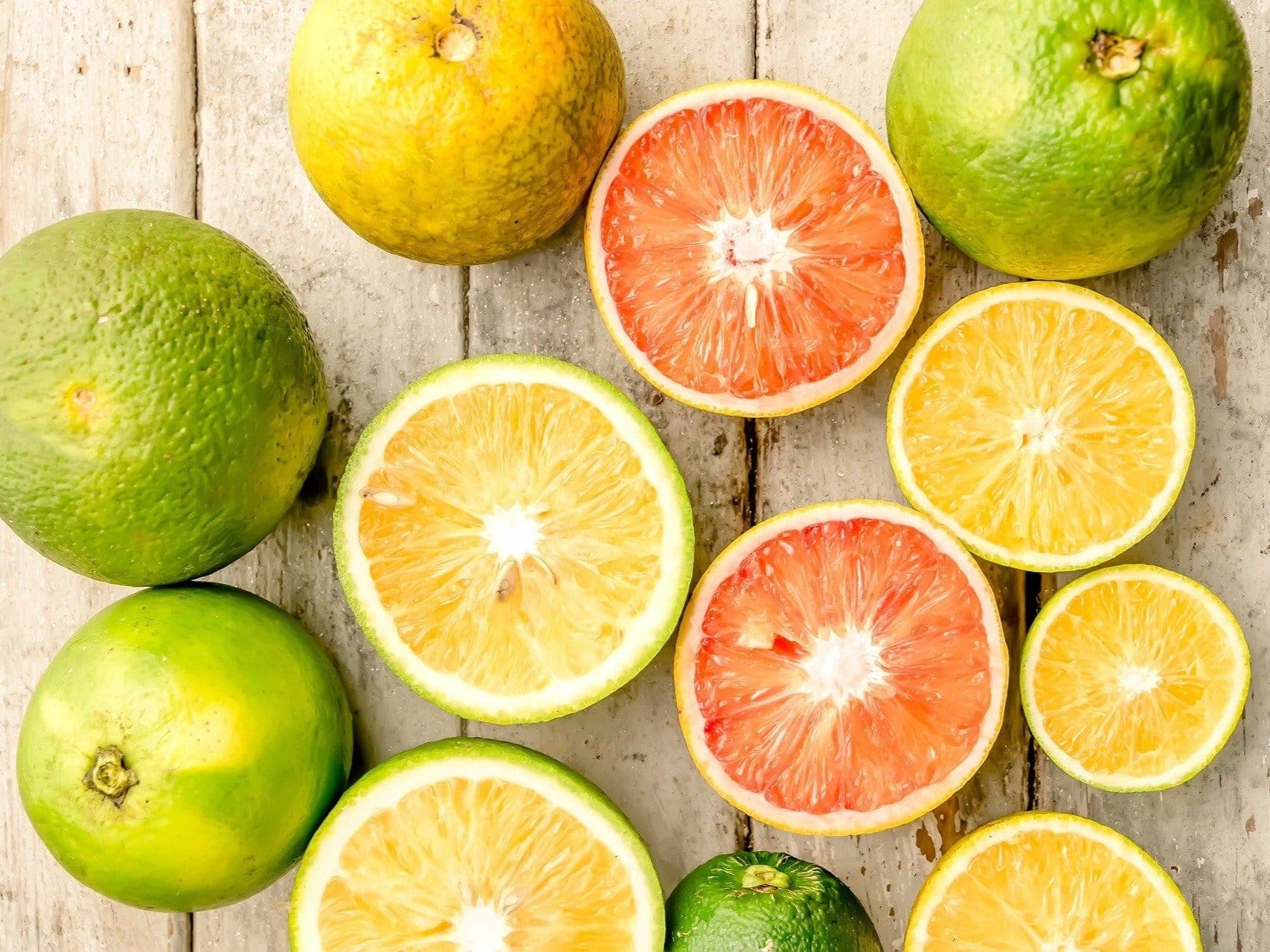Filters
6 products
Discover the power of slow juicing – high-quality juicers for fresh and healthy juices at home!
Immerse yourself in the world of fresh juice with our high-quality juicers. Enjoy the full flavor and concentrated nutritional power of fruits and vegetables, prepared quickly and easily. Health begins in your kitchen – experience it with every sip of freshly squeezed juice.
Find the right slow juicer for you
Our slow juicers in comparison
Compare our juicers and find your favorite slow juicer!
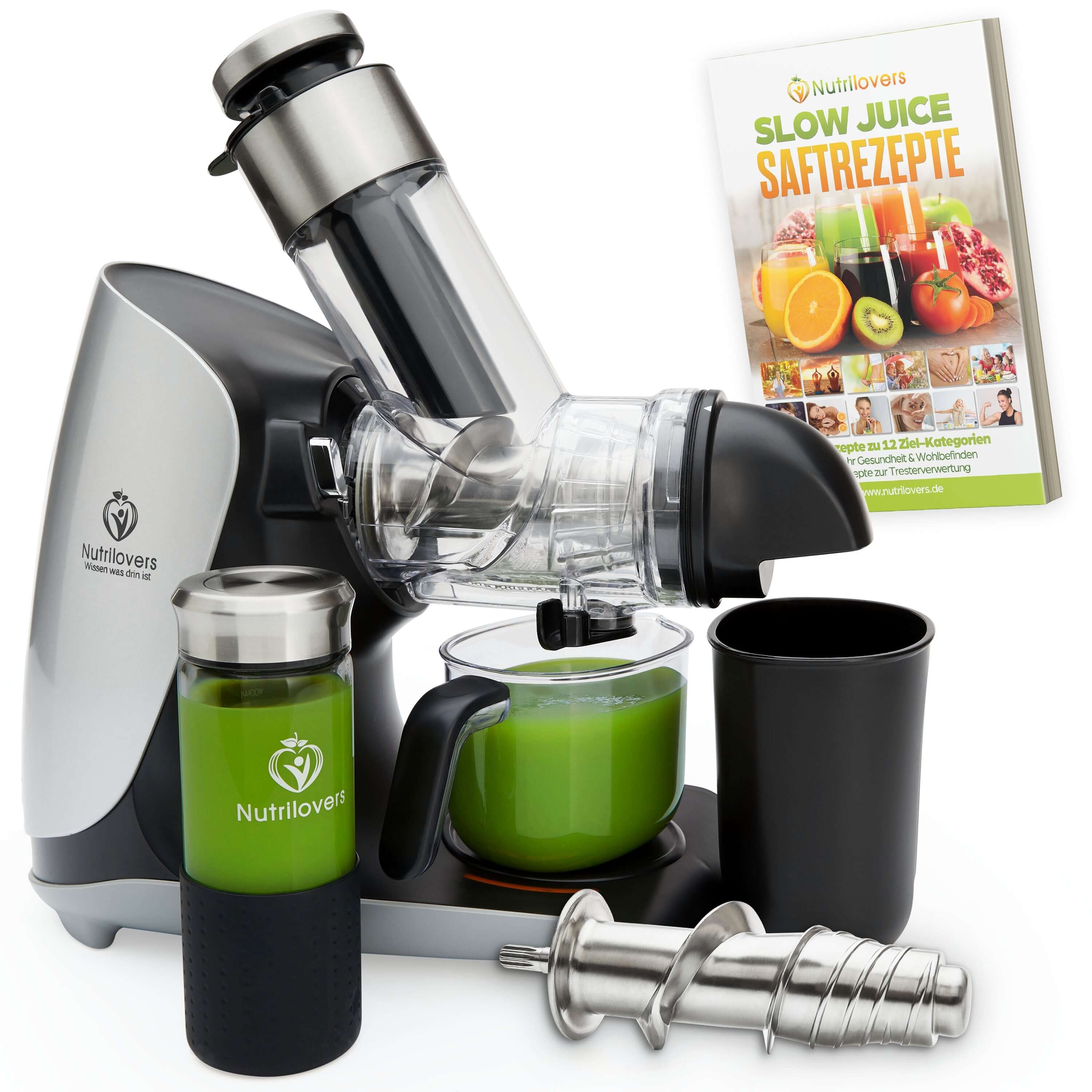
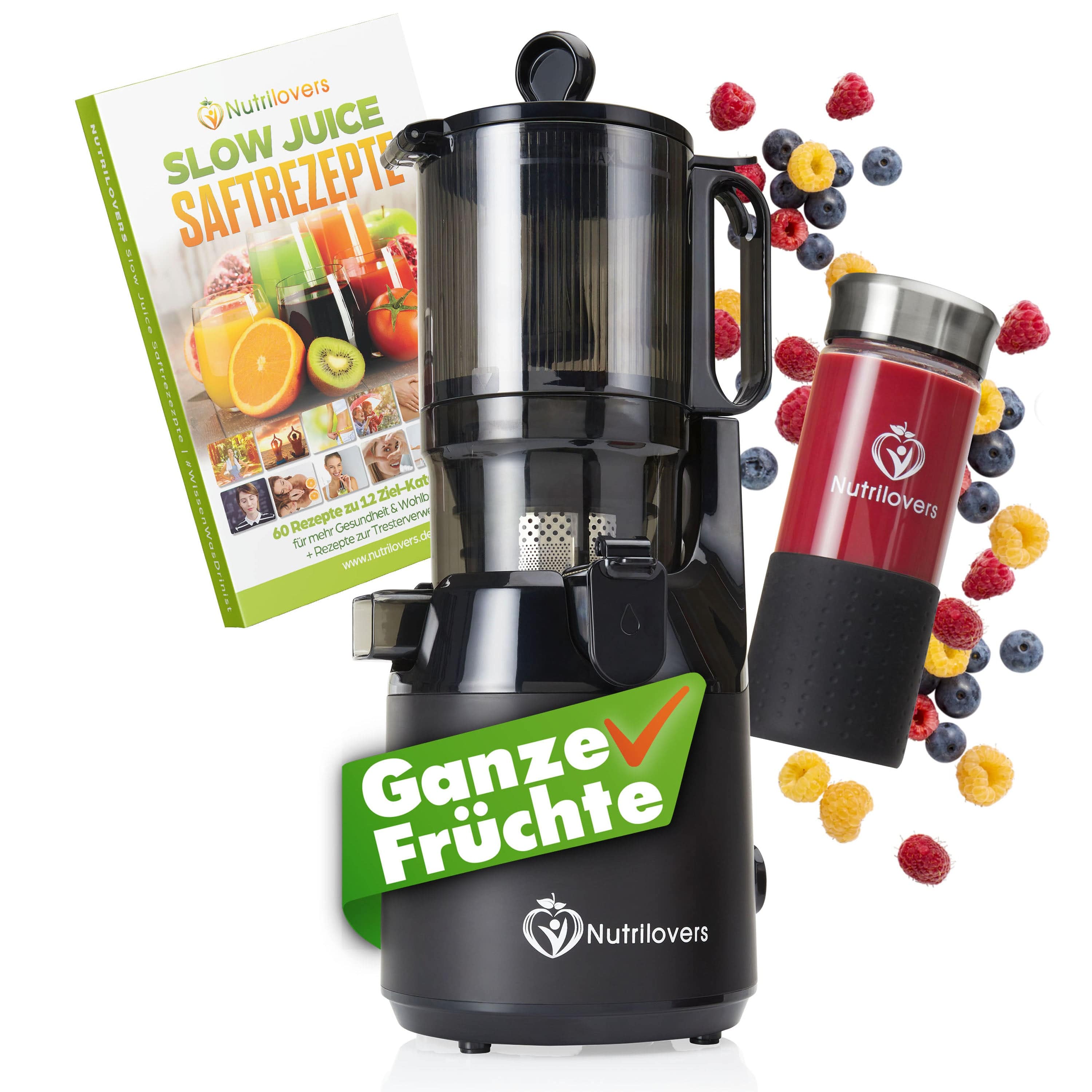
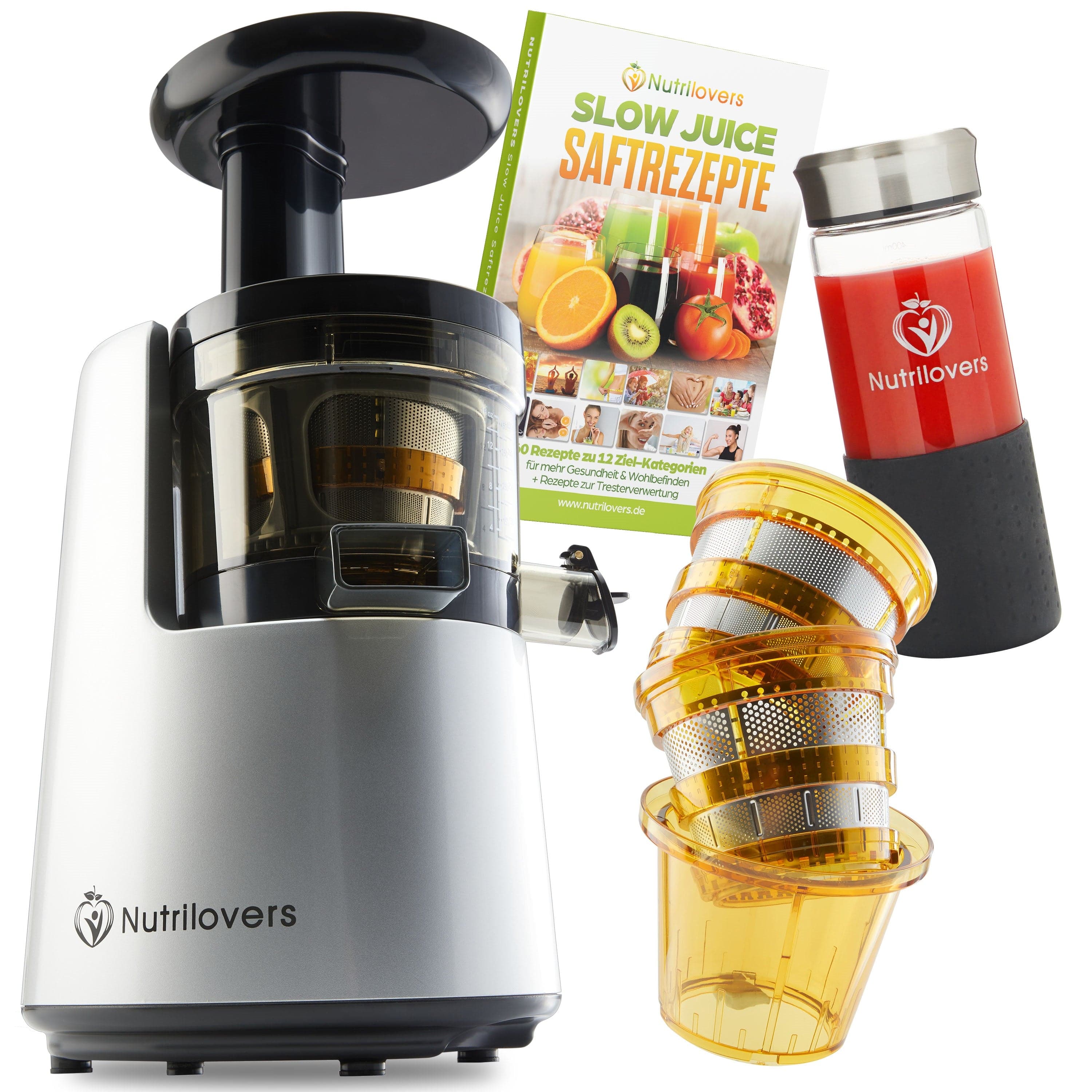
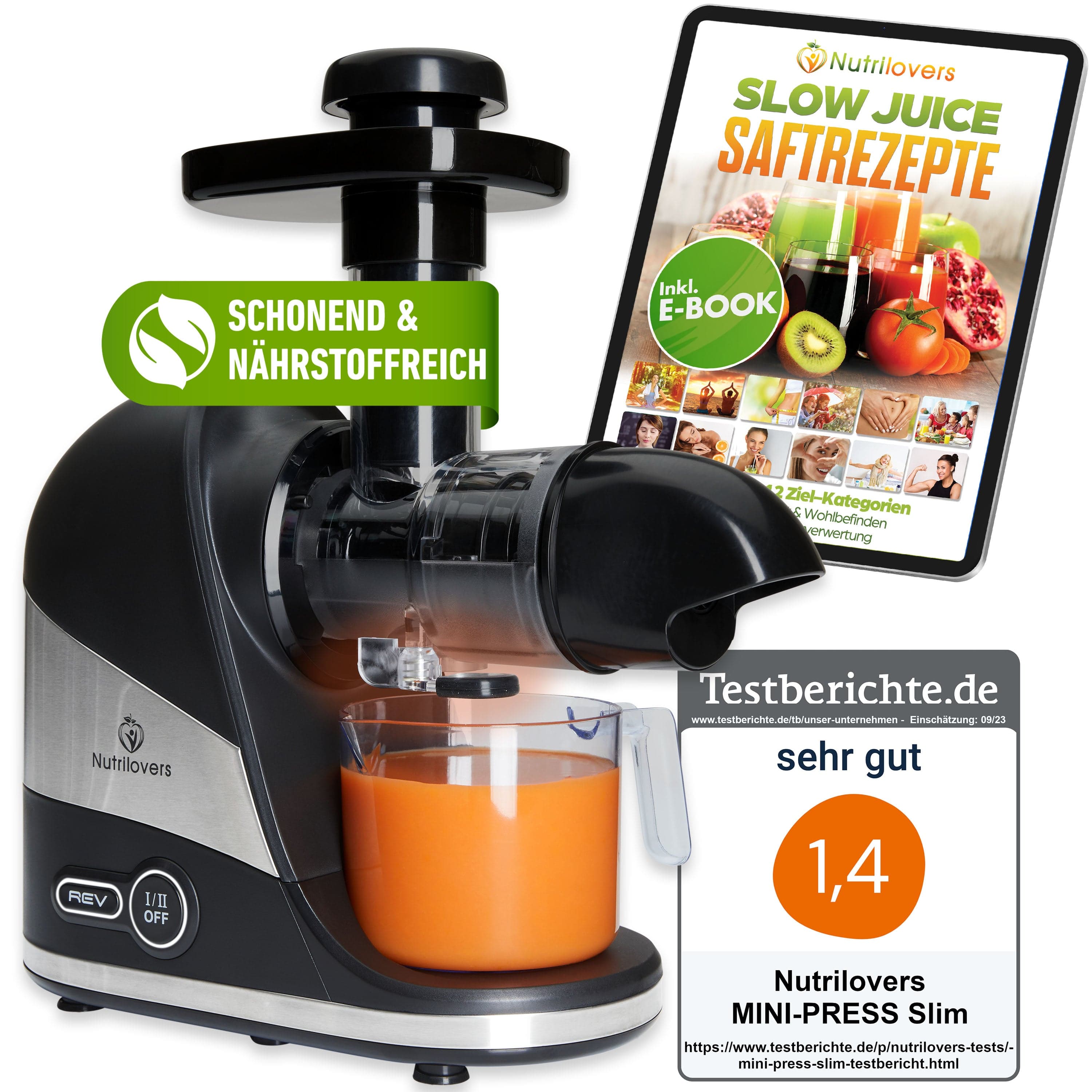




Horizontal
Vertical
Vertical
Vertical
Horizontal
stainless steel
PMMA (BPA-free)
ULTEM (BPA-free)
Ceramics
ULTEM (BPA-free)
150 W
200W
200W
250W
150 W
60 rpm
45 rpm
45 rpm
55 rpm
60 rpm
✅
✅
✅
✅
✅
✅
✅
✅
✅
✅
_
-
✅
_
_
55 dB
72 dB
55 dB
55 dB
55 dB
5 kg
4.8 kg
4.5 kg
6.3 kg
2.8 kg
Hinged lid (Ø 7 or 4.5 cm)
Ø 135 mm
4 x 3 cm
Ø 4.5 cm
Ø 4.5 cm
professionals
professionals
professionals
professionals
Beginners
Terrific
Terrific
Terrific
Terrific
Very good
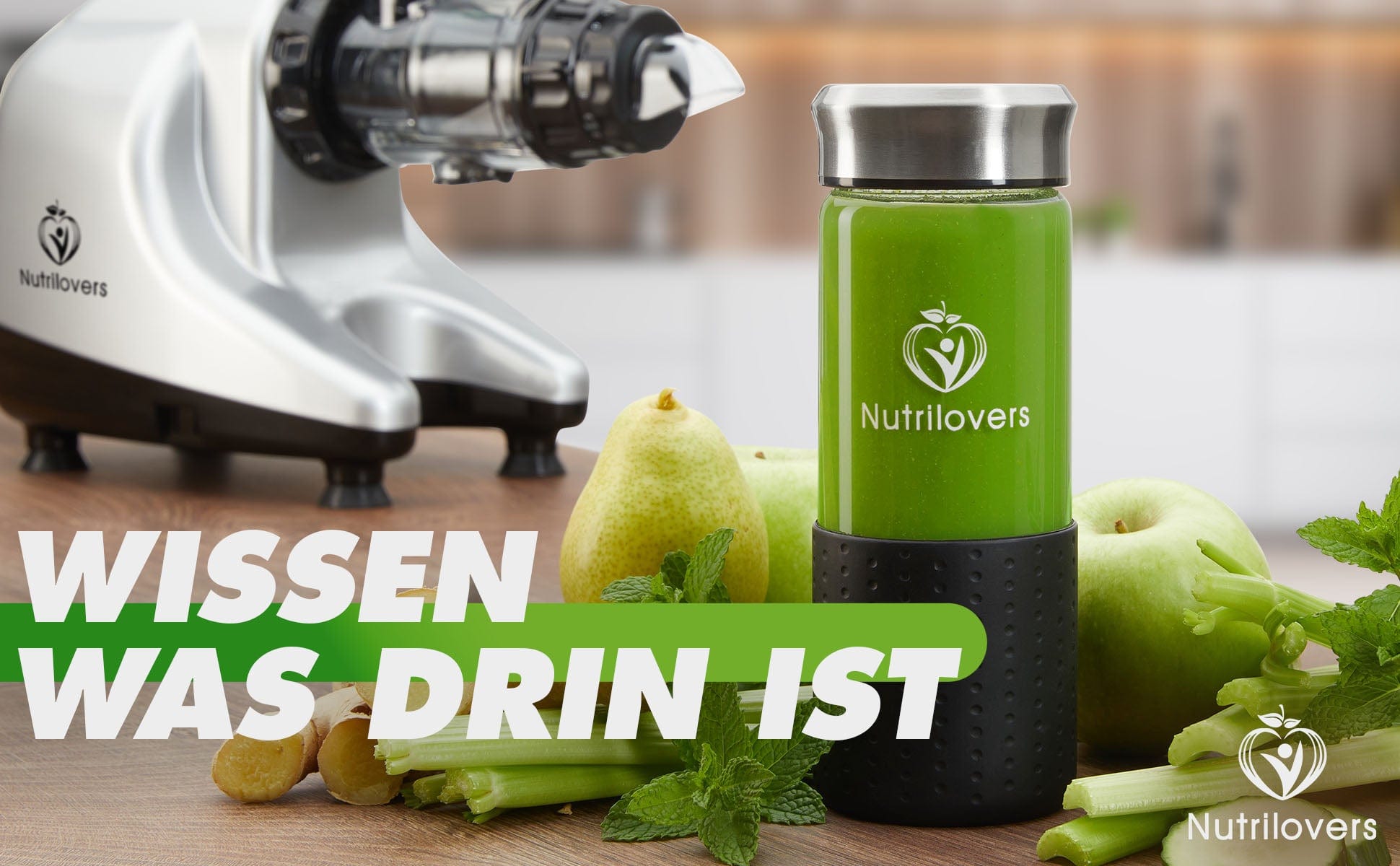
What is slow juicing?
Slow juicing , also known as slow juicing , is a revolutionary method for extracting fresh juice from fruits and vegetables. Unlike traditional centrifugal juicers, which operate at high speed and can often lead to oxidation and nutrient loss, slow juicing is characterized by its gentle and slow pressing.
Why slow juicing?
Slow juicing offers many advantages over other juice extraction methods, such as centrifugation. The slow and gentle processing preserves more nutrients, enzymes, and vitamins in the juice. The juice is of better quality, has a higher yield, and is less oxidized. Our slow juicers are also easy to clean.
Advantages of slow juicing
The three main advantages of slow juicing are:
- Preservation of nutrients: Slow juicers operate at a low rotation speed, which preserves more nutrients, enzymes, and vitamins in the juice.
- Better juice quality: Gentle processing of the ingredients results in higher quality juice with a more intense flavor, clearer consistency, and more intense color.
- Higher juice yield: Slow juicers extract juice more thoroughly and achieve a higher yield, so you get more juice from the same ingredients.

What should you look for when buying a slow juicer?
Buy the test-winning slow juicer from Nutrilovers for gentle juicing and more vitamins.
Premium quality at unbeatable prices!
If you're thinking about buying a slow juicer , Nutrilovers is the right place for you.
We are experts in slow juicing, also known as cold -pressing. If you have any questions about juicing, slow juice, or slow juicers, we recommend our Slow Juicer FAQ, where we answer the most frequently asked questions. If you already know that you want to use slow juicing for your health but are still unsure which slow juicer is right for you, please carefully read the descriptions of our electric slow juicers here.
If you have any further questions, please send us an email to mailme@nutrilovers.de or contact us directly via our support center at support.nutrilovers.de.
Happy Juicing!
Nutrilovers | #KnowWhat'sInside
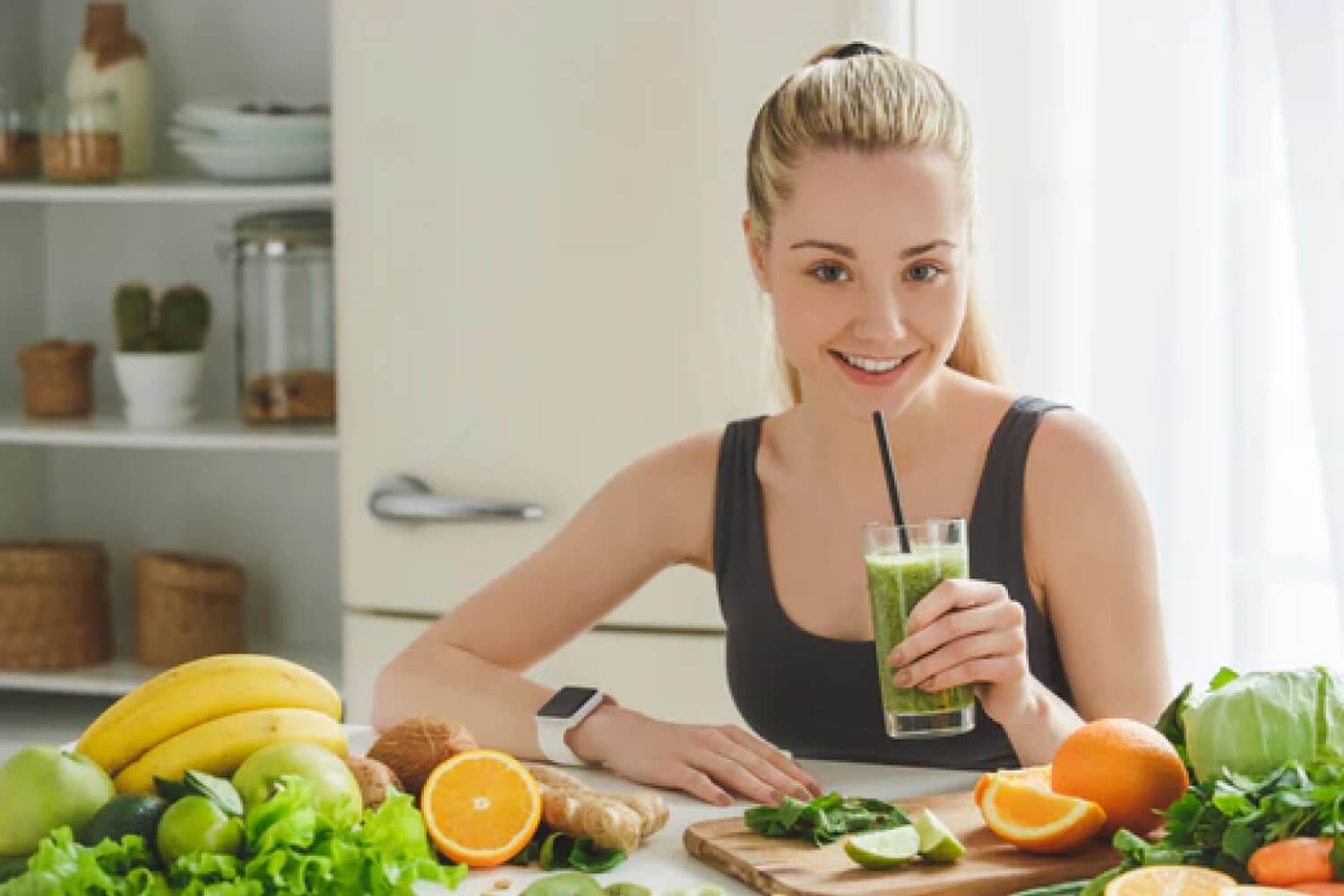
Why Nutrilovers?
Well-being and healthy nutrition are our life's work! Behind Nutrilovers are real people who know what they're talking about. Over the years, with our high-quality and innovative products, we have been able to help people change their diets easily but effectively and achieve a better quality of life.
Why Nutrilovers?
Well-being and healthy nutrition are our life's work! Behind Nutrilovers are real people who know what they're talking about. Over the years, with our high-quality and innovative products, we have been able to help people change their diets easily but effectively and achieve a better quality of life.

Slow juicing & juicing
Frequently Asked Questions
Questions and myths about slow juicing. We clarify and reveal the truth.
What is “Slow Juicing” / “Slow Juice”?
Slow juice (literally translated: "slow juice" ), or so-called "slow juicing," was invented in Thailand and refers to a particularly gentle form of juicing, i.e., the extraction of juice from fruit or vegetables. With this method, the juice is pressed very slowly and carefully and, because no heat is generated in the juice, is also referred to as "cold-pressed."
Why is slow juice so healthy?
Slow juicing involves neither heat nor oxygen being introduced into the juice. This is what makes it so special. This pressing process preserves all the important nutrients, such as enzymes, vitamins, trace elements, and minerals, in the juice. All you need is a slow juicer, a special electric juicer that presses very slowly and gently, preserving the nutrient content of the juiced product to the maximum .
You can find out more about this topic in our blog article:
Slow Juicer vs. Centrifugal Juicer - What's the Difference?
With a slow juicer, the speed and rotation of the auger are crucial. Scientists have observed the chewing motion of the human body and determined that a chewing speed of between 30 and 40 movements per minute is optimal for optimal utilization of nutrients.
Only through this intense chewing motion can food be properly broken down and salivated. This is precisely the principle used by slow juicers.
Fruit, vegetables, but also grasses, herbs and salads are chopped slowly, gently and relatively quietly at 40 to 60 revolutions per minute and pressed out through a pressing roller or auger.
The cell membranes of the pressed material are gently broken open, releasing the valuable plant compounds and the valuable chlorophyll from green leafy vegetables and grasses . The result is a homogeneous, tastier juice. The pressed material has minimal contact with oxygen, which means the juice doesn't immediately turn brown and can be stored in the refrigerator for up to three days.
The only advantage of a centrifugal juicer is the time savings. However, the rapid juicing process is a nutrient killer. The juicer's centrifuge cuts up the pulp and expels the liquid, including vitamins, enzymes, and minerals, from the cell walls. Unfortunately, the juice is not only broken down into its components of water and pulp, but the high rotation speeds (up to 15,000 rpm) and the swirling oxygen also cause it to oxidize very quickly , thereby losing the important vitamins.
Therefore, the juice should be consumed immediately. Longer storage in the refrigerator is not advisable, as the flavor deteriorates quickly and the juice begins to taste sour after about 12 hours.
A slow juicer is therefore clearly the better choice if juice quality is your priority.
You can find out more about this topic in our blog article:
Horizontal vs. Vertical Slow Juicer - What's the Difference?
Horizontal slow juicers are characterized by a horizontal design and a press screw that is elongated and horizontally mounted
Vertical slow juicers, on the other hand, have a vertical design and the pressing auger is more round and is mounted vertically in the device.
Features of a vertical juicer:
• Larger press screw and therefore slightly faster preparation
• Larger filling opening, making filling easier
• Space-saving in the kitchen
• Slightly easier to clean
• Suitable for all types of pressed material
• Sometimes reaches its limits when dealing with fibrous material
• Various variations through the different sieves, such as smoothies, juices, ice cream/sorbets, tofu, soy milk
Features of a horizontal juicer:
• Press screw slightly smaller, preparation takes slightly longer
• Filling opening slightly narrower
• Requires a little more space in the kitchen (wider)
• Cleaning is slightly more complex (depending on the model)
• Suitable for all types of pressed material
• Ideal for fibrous leafy greens such as celery, wheatgrass
These points clearly demonstrate that there isn't one perfect juicer for every situation. Above all, you should consider whether you're primarily interested in making green juices with long-fiber pulp or whether you prefer blended fruit and vegetable juices.
However, the question remains as to what else should be prepared with the juicer, such as ice cream, sorbet, frozen yogurt or almond milk, or whether it is primarily intended for juices alone.
You can find out more about this topic in our blog article:
▷ Info: Vertical vs. Horizontal Slow Juicer - What's the Difference?
Buying a slow juicer – what should you look out for?
If you want to make fresh, self-pressed juices and get the maximum amount of vitamins and juice yield, you should use a slow juicer, a specific type of electric juicer, to juice fruit and vegetables at a cool temperature according to the slow juicing principle.
You should always pay attention to the following 10 points:
1. Low revolutions per minute
Older slow juicers extracted juice at up to 70 revolutions per minute. Newer machines now do this at only 45-60 rpm . The lower the speed, the better.
2. BPA-free
It's important that all plastic parts that come into contact with the juice are BPA-free (i.e., do not contain bisphenol A ) and that all parts have been tested for food safety. Tritan or ULTEM, which are BPA-free, are commonly used.
3. Low wattage
More watts, more power is better? Not with a slow juicer. With a slow juicer , 150–350 watts is the maximum wattage you should look for. This is less about energy efficiency than about juicing really slowly.
4. Press screw (vertical vs horizontal)
Horizontal juicers are best suited for juicing herbs, wild plants, grasses, lettuce, cabbage and other leafy greens.
The reason is that the finer pressing shafts are better able to handle the fibers in the greens. Vertical juicers are superior when it comes to quickly producing pure fruit and vegetable juices, or blended juices—especially from softer pulp. They produce a ready-blended juice from, for example, apple, carrot, or orange in a simple and quick way.
5. Are individual parts available?
All individual parts should be available for purchase separately, which is often difficult with many other manufacturers. With Nutrilovers slow juicers, you don't have to worry. All parts, including wear parts, are in stock for replacement – and if they're not, we'll source them for you! We also provide replacement parts at cost price and don't charge exorbitant fees.
7. Cleaning & Handling
The device should be easy to disassemble and reassemble. Operation and handling should be simple. Typically, the devices only work if everything is properly assembled, which provides additional safety. The individual parts should be easy to clean, and the device should include cleaning brushes for hard-to-reach corners.
8. German customer support
When purchasing a slow juicer, we strongly recommend making sure you have first-class German-speaking customer support. Since slow juicers contain more parts than smoothie blenders/mini blenders and assembly is somewhat more complex, it's very important to be able to get help quickly. A seemingly good deal from a Chinese supplier can quickly become a flop.
9. Return function
The forward and reverse function is a very practical feature that you absolutely shouldn't do without. The reverse function helps when pressing if pieces are blocking the press mechanism. These can then be easily released. This function is also very helpful for cleaning.
10. Accessories
Practical accessories such as a juice container with a drip stop for a constantly clean work surface, an insert for frozen ingredients, a pestle, a pulp container with a large capacity, a cleaning brush , the sieve made of stainless steel and various recipe suggestions are a big plus.
You can find out more about this topic in our blog article:
▷ Buy a slow juicer: 10 points you should definitely pay attention to
Was unterscheidet Nutrilovers?
THREE THINGS distinguish us from other brands and manufacturers:
(1) We love slow juice! Nutrilovers was born out of a passion for slow juicing. We don't just offer slow juicers as another product in a huge product range. Our slow juicers are carefully selected and adhere to our criteria and quality standards. Consciously nourishing your body with natural and unprocessed ingredients is the foundation for a fulfilling life. Hence our motto: #KnowWhat'sInside. The ease of use and easy cleaning of our devices make this easy for you. So that as many people as possible can participate in our idea and achieve their goals, we offer our products in the mid-price segment, while at the same time paying particular attention to high quality.
(2) Customer focus! - Customer satisfaction isn't just marketing platitudes for us – we consider every customer a new Nutrilover in our Nutrilovers community. If you have any problems or questions at any time, please write to us. We're here for you!
Email via mailme@nutrilovers.de, Instagram / Facebook via @nutrilovers.de
(3) Trust! - In addition to the legally required 2-year warranty, Nutrilovers offers a 3-year warranty on the motor for slow juicers.
If anything goes wrong, we're available at any time and will take care of it – even after the statutory warranty period has expired. (You can find the relevant warranty terms and conditions here.)
Which fruit is suitable for the slow juicer?
Basically, you can juice almost any fruit in a slow juicer.
Fruit is delicious and rich in vitamins and minerals , and we all know it as a great source of juice. Since childhood, we've enjoyed apple juice, orange juice, multivitamin juice , and so on. Fortunately, you can juice any fruit imaginable at home with a slow juicer , creating fresh, delicious, and healthy juices for you and your family.
Our personal top 10 fruits for slow juicing:
1. Apple
2. Pineapple
3. Tomatoes
4. Oranges
5. Berries
6. Cherries
7. Grapefruit
8. Melon
9. Pear
10. Lemons, limes
You can find more information on this topic in our blog article: ▷ Which fruit is suitable for the slow juicer?
Kann man Gemüse entsaften?
Just like fruit, vegetables are also easy to juice. Delicious vegetable juices are ideal for those who struggle to get their daily portion of vegetables. If pure vegetable juices aren't quite your thing, you can also blend your vegetable juice with other vegetables or fruits for a delicious juice combination.
In principle, you can juice any vegetable that can be eaten raw. However, vegetables with a high water content (such as cucumbers) form your base juice.
Green leafy vegetables such as spinach and kale also provide you with many nutrients, vitamins and minerals .
Below you'll find our top 12 vegetables to put in your slow juicer . They're all rich in nutrients , contribute significantly to your health, and are great for juicing.
Our personal top 12 vegetables:
1. Celery
2. Carrots
3. Cucumber
4. Broccoli
5. Fennel
6. Kale
7. Spinach
8. Kohlrabi
9. Wheatgrass
10. Peppers
11. Beetroot
12. Ginger & Turmeric
You can find out more about this topic in our blog article: ▷ Which vegetables are suitable for the slow juicer?
Which ingredients are NOT suitable for the slow juicer?
While fruits and vegetables are generally great for juicing, there are some vegetables that don't juice as well as others. Some simply don't have enough water content to juice, while others have a consistency that makes juicing difficult.
Not suitable for juicing:
1. Avocado
2. Banana
3. Figs
4. Mango
5. Eggplants
6. Dates
7. Rhubarb
8. Green beans
9. Elderberry
10. Coconut meat
11. Overripe, very soft fruit
It is also important to note that a slow juicer is not a mixer/blender, which means that ingredients such as nuts or seeds cannot be added like you would in a smoothie.
You can find out more about this topic in our blog article: ▷ Which ingredients are NOT suitable for the juicer?
Further questions?
Contact us by email: mailme@nutrilovers.de , subject: Question and we will get back to you quickly with an answer.
We look forward to seeing you!
Your NUTRILOVERS team | #KnowWhat'sInIt
Get started easily, healthily & deliciously
The best recipes for your slow juicer
Conjure up anything on the table with the slow juicer!
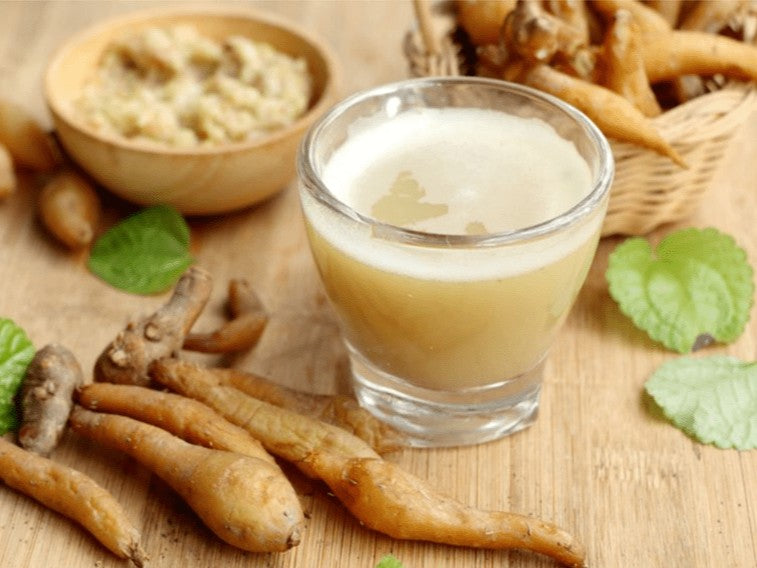
Make your own ginger shot | Recipe
Ginger shots are a simple and delicious way to boost your immune system and provide your body with essential nutrients. Try our ginger shot recipe now and enjoy the many be...
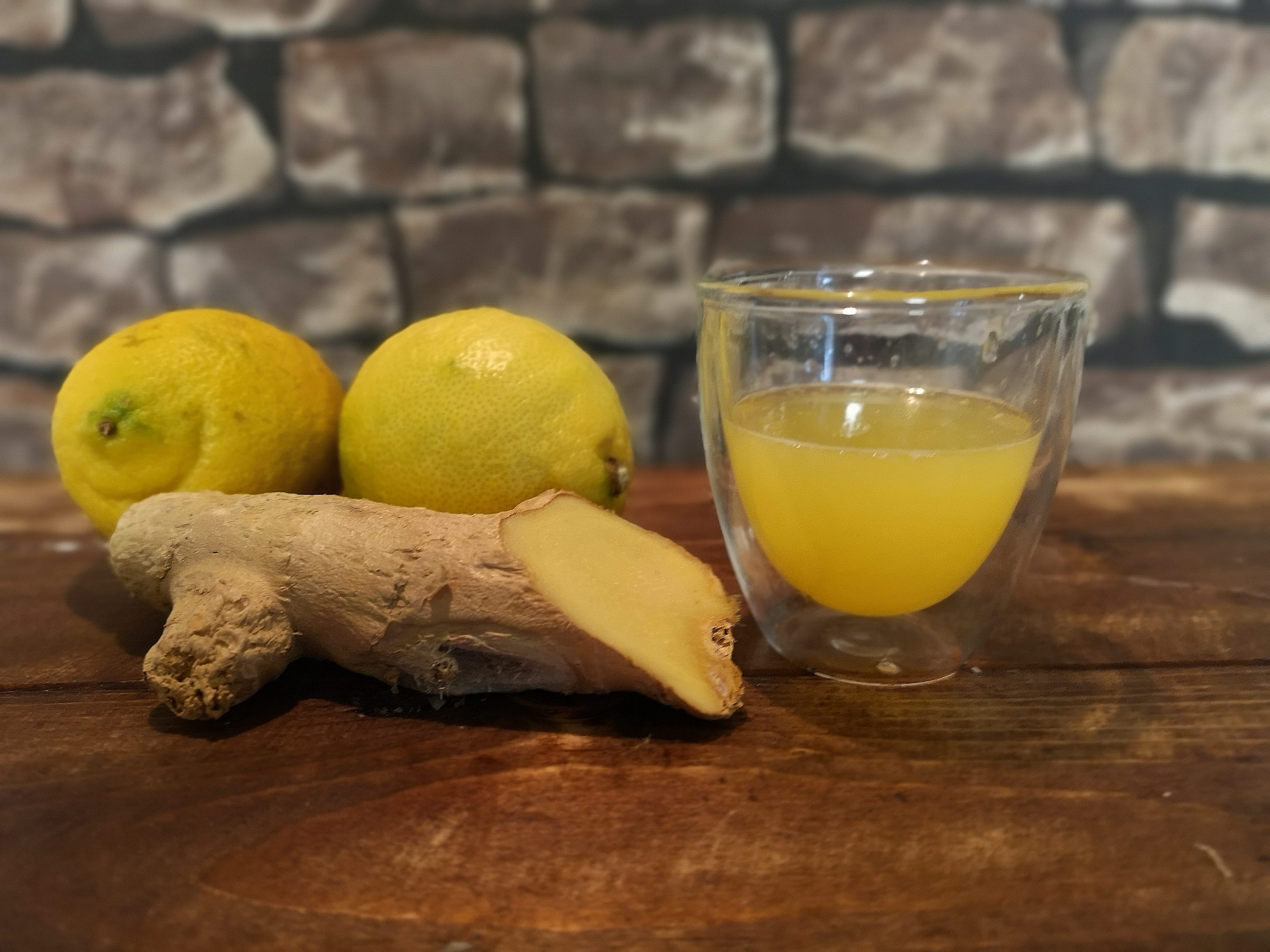
Strengthen the immune system
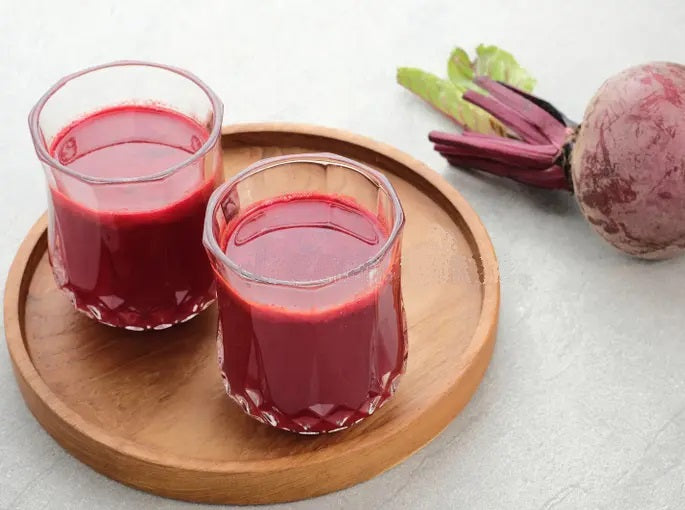
A tempting glass of this juice is the perfect start to the day.
Everything important on the topic
Slow juicing
Nutrilovers Slow Juicer - Gentle juicing for more vitamins. Slow juicer test winner. Premium quality at great prices!
Still unsure?
Looking to buy a slow juicer ? Then Nutrilovers is the right place for you.
Slow juicing, or in German slow juicing via cold pressing, is our specialty.
If you have any questions about juicing , slow juice or slow juicers , we recommend our Slow Juicer FAQ where we answer the most frequently asked questions about juicing.
More about slow juicers
Do you already know that you want to try slow juicing for your health, but are still undecided about which slow juicer is right for you? Then we recommend reading the descriptions of our electric slow juicers carefully. If you have any further questions, simply send us an email to mailme@nutrilovers.de or contact us directly via our support center.
Happy Juicing!
Nutrilovers | #KnowWhat'sInside



